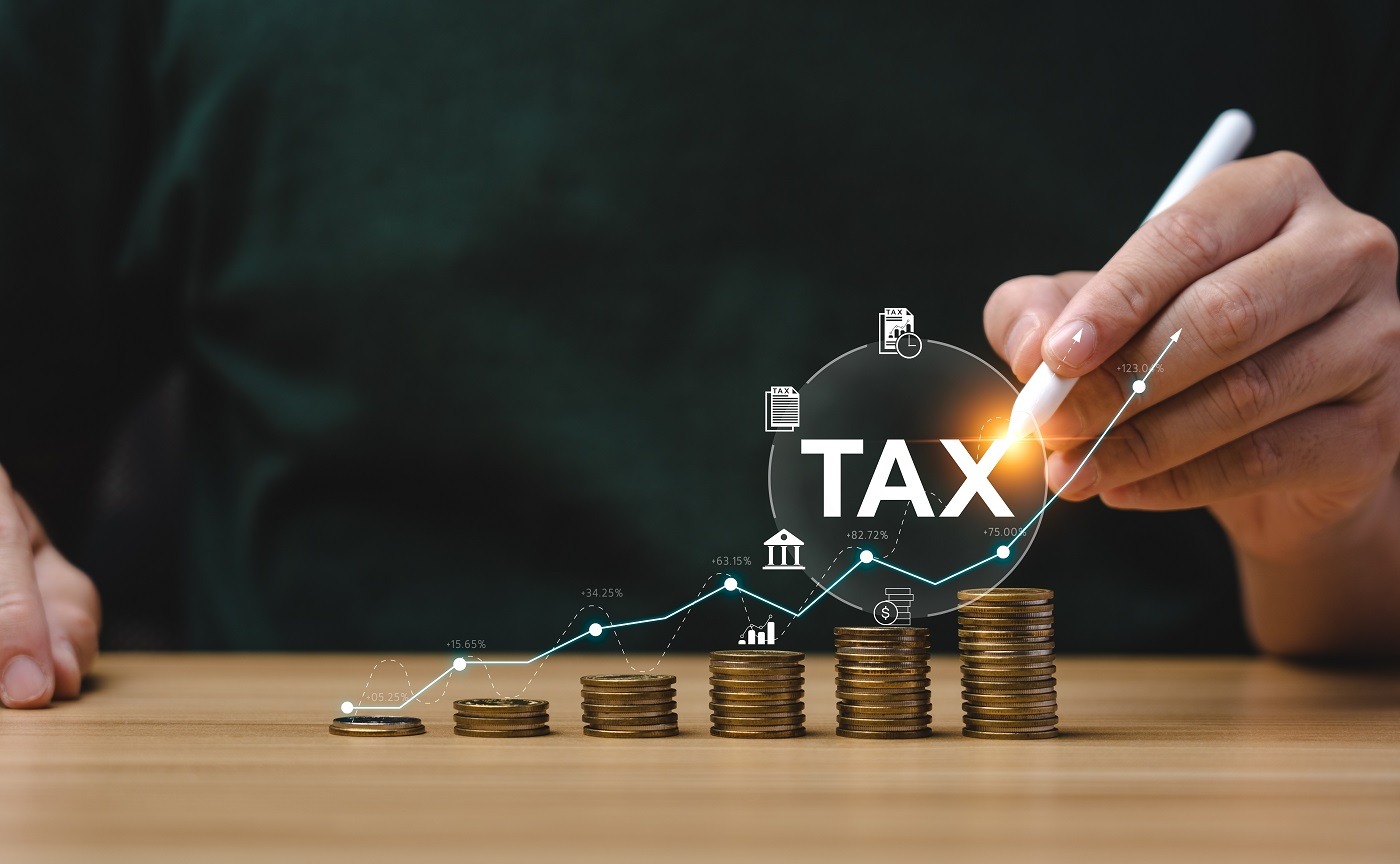This week on the Finance Friday installment of the Money Girl podcast, I reply to a great question from Elaine.
“I’m retired and have Social Security benefits, a pension, savings, and a traditional IRA. About six years ago, I bought some real estate stock that went up, and I’m thinking about cashing it out. What taxes would I owe on the sale, and how should I reinvest the money?”
Thanks so much, Elaine! I’ll review what tax you must pay on various investments and recommend some options to consider when you have extra cash in retirement.
Types of investment taxes
Anytime you’re fortunate enough to make money, whether from an employer, your own business, or an investment, you typically owe taxes. For 2024, your ordinary income is taxable according to seven brackets ranging from 10% to 37%.
Examples of “ordinary” income include:
- Wages
- Salaries
- Tips
- Bonuses
- Commissions
- Rents
- Royalties
- Short-term capital gains
- Unqualified dividends
- Interest income
However, certain types of investment income, including long-term capital gains and qualified dividends, are taxed differently. Some taxes are due only if you choose to sell an investment for a profit, and others are due when you get paid a distribution.
Another consideration is the type of account where you own an investment. For instance, with a tax-advantaged account, like a traditional 401(k), you only owe taxes once you take retirement withdrawals. Or, with a Roth IRA, you get tax-free withdrawals in retirement if you own the account for at least five years.
But for capital assets, like a home, or investments in a taxable account, like a brokerage, taxes are due when you earn money from them. The tax rate you must pay depends on factors I’ll cover in a moment.
RELATED: 11 best brokerage accounts
What are capital gains?
The first type of investment income, capital gains, arises when you choose to sell an asset, like a stock or home, or more than you paid for it. Your profit minus your cost basis is called a capital gain. For instance, if you buy one share of stock for $20 and sell it for $30, you have a $10 capital gain.
Remember that a capital gain is only taxable if you “realize” it by selling the asset. If you have an unrealized gain, also called a paper gain, it’s not taxable. You can watch your asset appreciate and won’t have to pay capital gains tax until you sell it.
Let’s say you have a $10 gain. You’d owe capital gains tax on the entire amount. If you owned the share for a year before selling it, you’d have a long-term gain, which is taxed at reduced rates, currently ranging from 0% to 23.8%, depending on your total taxable income and tax filing status.
Note that some investments have higher capital gains tax rates. For instance, collectibles, like rare coins and art, typically have a long-term capital gains tax rate of 28%.
Elaine mentioned owning her stock for six years, so she would owe long-term capital gains on the sale–unless she owns the stock inside a retirement account. But we’ll assume she owns it in a taxable brokerage. Her tax rate depends on her tax filing status and total income.
For instance, if Elaine is single with taxable income up to $47,025, she’d owe zero capital gains on her stock sale! If her taxable income is over $47,025 but under $518,900, she’d owe 15% on her gain. Elaine could consult with a tax professional to estimate her tax liability on the potential stock sale before deciding whether to sell or keep it.
Owning an asset for less than a year means any capital gain is considered short-term, taxed at higher ordinary income rates, ranging from 10% to 37%. So, owning an asset for longer helps minimize taxes.
Also, if you have a capital loss on an investment, you may be able to offset other gains or take a tax deduction, depending on your situation. But you can never claim a capital loss when selling a home.
What are home sale capital gains?
As I mentioned, selling your home for a profit also creates a capital gain for income taxes. However, if you follow specific IRS rules, there is a unique home sale gains exemption for up to $250,000 for singles and $500,000 for joint taxpayers. For instance, it must be your primary residence and you must have lived in the property for at least two of the previous five years.
For instance, if you purchased your home for $300,000 and sold it ten years later for $500,000, your entire $200,000 gain would be tax-free if you meet the ownership requirements. If you want to learn more, listen to podcast 826, What Tax Do I Owe on My Home Sale?.
What are investment dividends?
The second type of investment income you could have is from owning shares of dividend-paying stocks. A company can reinvest its profits into the business or pay it to shareholders as dividends.
Not all stocks pay dividends, but many mature companies pay consistent dividends that can even increase over time. For instance, Caterpillar, Inc. (CAT) pays a dividend yield of 1.57%. The yield represents a stock’s annual dividend amount divided by its current price per share.
If you own a dividend-paying stock, you automatically receive a dividend when the company declares one. You can take dividends in cash or reinvest them into the company by purchasing more shares.
Either way, you owe taxes if you own a dividend stock in a taxable brokerage account. For instance, if you receive $100 monthly from a dividend stock, you’ll receive a statement from the company at the end of the year showing income paid of $1,200.
Dividends can be “qualified” for special tax treatment if you own the investment for more than 60 days. That means you pay taxes based on the capital gains tax rates from 0% to 23.8%, depending on your total taxable income.
As I mentioned, nonqualified dividends, or those you own for less than 60 days, get taxed at your ordinary tax rate, which is typically higher. And if you own a dividend stock in a retirement account, the income gets shielded from tax temporarily in a traditional account or forever in a Roth.
SEE ALSO: 10 rules for successful investing you should know
What is interest income?
The third type of investment income is interest, which can come from bank savings, a CD, or a bond investment and is usually taxed as ordinary income when owned in a taxable brokerage or bank account.
There’s an exception for interest on bonds issued by states and municipalities, which are exempt from federal income tax. You might also get a break on state income taxes on certain investments, such as Treasury bonds.
And speaking of states, be aware that your home state may have its own taxes on investment earnings in addition to the federal rates I’ve reviewed. So always speak with a local tax advisor about your situation if you have questions about investment income.
READ ALSO: Am I investing too much for retirement?
How to invest extra cash in retirement
Elaine also asked what to do with her cash if she sells her stock. Depending on her financial picture, she could add it to her savings, pay down any debt, invest it, or use it to reduce her future taxes.
Assuming Elaine has no high-interest debt, she might want to boost her savings balance, which is a safe choice. Having at least a year’s worth of living expenses in an FDIC-insured high-yield savings account is wise. And if she already has enough savings, Elaine could shop for a higher-rate CD.
However, if Elaine feels good about her savings and retirement income, another option is to create a plan for Roth conversions over multiple years. That’s a strategy where you move money from a traditional retirement account, pay income taxes on the withdrawal, and move it to an after-tax Roth IRA.
It’s a wise move if you believe your current tax rate is lower than it will be in the future.
But it’s critical to be mindful of how Roth conversions increase your taxable income and have a plan to stay in the lowest possible tax bracket annually. It’s wise to consult a financial advisor to calculate Roth conversion thresholds.
Also, Elaine didn’t mention having a Roth IRA, so she’d need to open one. While her conversions would always be tax-free, she’d need to own the Roth IRA for at least five years before her account earnings would also be tax-free, no matter her age.
Depending on her comfort with risk, she could put her Roth conversions in a safe vehicle, like a CD or money market account. Or, if she wants more growth, she could invest in a total market index or exchange-traded fund inside the Roth IRA.
If Elaine is considering leaving money to heirs, making them a beneficiary of a Roth IRA is an excellent way to pass along tax-free money to future generations.





